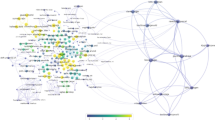Zusammenfassung
Der Anstieg der zivilen Energie in den letzten zehn Jahren ist ein Schlüsselfaktor für den Übergang zu einer auf erneuerbaren Energien basierenden Energiewirtschaft, die sowohl die Kohlenstoffbindung der fossilen Wirtschaft in Frage stellt als auch das bestehende Energiekonzept stört. Der Übergang stellt einen Wandel im dominanten techno-ökonomischen Paradigma dar. Diese Untersuchung zielt darauf ab, die Akzeptanz von zivilen Energieinitiativen zu unterstützen, indem sie bisher heterogene und scheinbar unvereinbare zivile Energieprozesse als qualitätsgesicherte kontinuierliche Verbesserungsprozesse rationalisiert und einen Digitalisierungsansatz zur Verbesserung des Prozessmanagements vorschlägt und eine Plattform für die weitere Prozessoptimierung bietet.
Abstract
The rise of civic energy over the past decade is a key contributor to the transition to a renewables based energy economy that both challenges the carbon lock-in of the fossil economy and disrupts the incumbent energy regime. The transition presents a shift in the dominant techno-economic paradigm. This investigation aims to assist the uptake of civic energy initiatives by streamlining hitherto heterogeneous and apparently disparate civic energy processes as quality-assured continuous improvement processes and proposes a digitalization approach to enhance process management and provide a platform for further process optimization.
Access this chapter
Tax calculation will be finalised at checkout
Purchases are for personal use only
Similar content being viewed by others
References
EESC, Changing the future of energy: civic society as a main player in renewable energy.
Scheer H (2005) The solar economy: renewable energy for a sustainable global future. Earthscan, London
Miller CA, Iles A, Jones CF (2013) The social dimensions of energy transitions. Sci Cult 22(2):135–148
Sovacool BK (2016) How long will it take?: Conceptualizing the temporal dynamics of energy transitions. Energy Res Soc Sci 13:202–215
Grubler A (2012) Energy transitions research: insights and cautionary tales. Energy Policy 50:8–16
Mathews JA (2013) The renewable energies technology surge: a new techno-economic paradigm in the making? Futures 46:10–22
Perez C (2009) Technological revolutions and techno-economic paradigms: working papers in technology governance and economic dynamics no. 20. Tallinn
Freeman CPC (1998) Structural crises of adjustment, business cycles and investment behaviour. In: Dosi G et al (eds) Technical change and economic theory. Francis Pinter, London, pp 38–66
Schumpeter JA. Business cycles: a theoretical, historical and statistical analysis of the capitalist process, 1939th edn. Chevy Chase Md. u.a.: Bartlebyʼs Books [u.a.]
Ayres RU, Ayres E (2010) Crossing the energy divide: moving from fossil fuel dependence to a clean-energy future. Wharton School, Philadelphia
Fouquet R (2010) The slow sSarch for solutions: lessons from historical energy transitions by sector and service, BC3 Working paper series 2010–05. Bilbao
Geels FW (2011) The multi-level perspective on sustainability transitions: responses to seven criticisms. Environ Innov Societal Trans 1(1):24–40
Radtke J (2014) A closer look inside collaborative action: civic engagement and participation in community energy initiatives. PPP 8(3):235–248
Bauwens T (2016) Explaining the diversity of motivations behind community renewable energy. Energy Policy 93:278–290
Schwanholz J, Graham T, Stoll P-T (Hrsg) (2018) Managing dmocracy in the digital age: internet regulation, social media use, and online civic engagement. Springer International Publishing, Cham
Saarikko T, Westergren UH, Blomquist T (2017) The internet of things: are you ready for what’s coming? Bus Horiz 60(5):667–676
Brouwers H, Woodhill AJ, Hemmati M, Verhoosel K, van Vugt S (2015) The MSP guide: how to design and facilitate multi-stakeholder parnterships. Centre for Development Innovation Wageningen UR, Wageningen
Deming WE (2000) In: Government, Education, second (Hrsg) New economics for industry, government, new economics for industry, government, education, new economics for industry. MIT Press, Cambridge, MA, S 92–116
McGovern G, Klenke T (2018) Towards a driver framework for regional bioenergy pathways. J Clean Prod 185:610–618
Bongiorno G, Rizzo D, Vaia G (eds) (2018) CIOs and the digital transformation: a new leadership role. Springer International Publishing, Cham
Bertelsmann-Stiftung (2017) Smart country – connected, intelligent, digital: Reinhard Mohn Prize 2017
Acknowledgements
The case study referred to was conducted within the COBEN project partly funded by the EU Interreg VB North Sea Region Programme. We kindly acknowledge the financial support and in particular the collaboration with the members of the project team.
Author information
Authors and Affiliations
Corresponding author
Editor information
Editors and Affiliations
Rights and permissions
Copyright information
© 2019 Springer Fachmedien Wiesbaden GmbH, ein Teil von Springer Nature
About this paper
Cite this paper
McGovern, G., Koch, B., Giesen, N., Klenke, T. (2019). A Digitalization Profile for Civic Energy Processes. In: Marx Gómez, J., Solsbach, A., Klenke, T., Wohlgemuth, V. (eds) Smart Cities/Smart Regions – Technische, wirtschaftliche und gesellschaftliche Innovationen. Springer Vieweg, Wiesbaden. https://doi.org/10.1007/978-3-658-25210-6_53
Download citation
DOI: https://doi.org/10.1007/978-3-658-25210-6_53
Published:
Publisher Name: Springer Vieweg, Wiesbaden
Print ISBN: 978-3-658-25209-0
Online ISBN: 978-3-658-25210-6
eBook Packages: Computer Science and Engineering (German Language)




